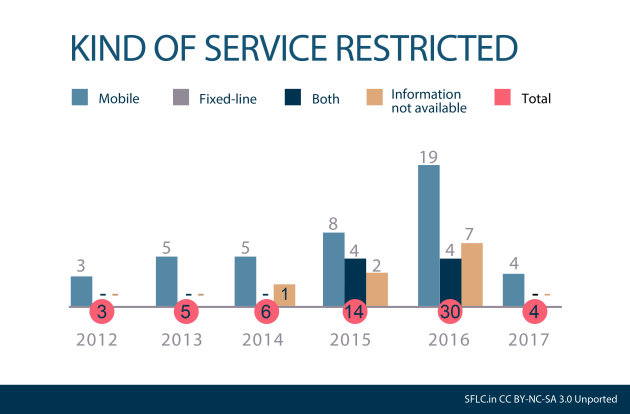Day 35 - MISSED; Internet Shutdowns in India
24 Mar 2017 100daysofwriting · india · internet · politics · technologyYeah, I missed it. But this is fine, I don’t blame anyone for this. I slept and woke up knowing exactly what I had done. I think the repenting part is more important than just missing it. (It also means I can sit down for 1 hour and write continuously about something that I haven’t decided yet!)
Today was the Eastern Groups performance for the Social-Cultural General Championship in IIT Kharagpur. These are inter-hostel competitions which are elaborately arranged, practiced for and performed. It’s kind of a big deal for everyone involved. I have done it since my second year. (Our hostel’s performance was around 2330-2355 last night. I now know that we won the Gold medal for our performance!)
LISTEN TO THE LAST SONG!
Anyway, after this I got back and didn’t write, even though I planned to. The topic that I planned to write about was Internet Shutdowns. A little bit of backstory on how I got to know about this particular topic was this On Air With AIB - Broad Bandh episode. They talk about how the Internet was shutdown in India by state governments at different points in time for absolutely arbitrary reasons. That they did was a surprise to me because I have never been in a state where the government shut down the internet, and these things also don’t happen to make it to Popular media (or print media), both of which are SURPRISING AS HELL. Internet shutdowns are a big deal and I would like to know that state governments can do it.
After seeing this, I was interested in how exactly they do it. Asking ISPs to switch off their routers is one extremely simple way to do this, whether they would or not, if they have legal recourse, etc etc are topics that I don’t know much about and won’t speak because I think that ISPs would rather stay in the good books of the state government considering that they need the state government’s cooperation for licenses, laying infrastructure and while autonomy and independence are great ideals; to imaging that ISPs have it would be too idealistic a scenario. I can’t believe they do, they might simply just switch their routers off. (Also, from a market point of view, if the government forces ALL ISPs to switch off their routers, they are not going to lose customers because no one was able to provide internet anyway. That is an INCREDIBLY crude estimation using my limited 2nd year HS20001 Economics course and what I learnt there on Supply and Demand and how the ideal rational consumer would behave)
This graph curiously shows that there were a negligible number of Fixed-Line internet shutdowns. Very interesting! In a primarily mobile user (78%) market like India, this is exactly the way to go.
A lot has been written about this before the AIB episode. It’s an epidemic, and clearly the state governments are using at the earliest sign of trouble.
I think that the chaos that the lack of Internet propagates is much much larger than the rumour spreading nonsense that happens on WhatsApp, primarily because people forwarding messages that are cleverly constructed don’t stop when they can clearly see that the authenticity can’t be verified. Beyond that, in most cases the origin of these “forwarded messages” isn’t even clear. It goes through many people before landing in some group of people who went to the same school decades ago. Are these groups required? Maybe. Should you forward anything to this group? HELL NO.
(I will stop before this becomes a rant on forwarded messages in WhatsApp and why I think the fact that the most time that you can snooze someone on WhatsApp is 1 year is a cute effort on WhatsApp part to let people redeem themselves)
But the Bangalore story has really shown the right way to use services like WhatsApp in an IM friendly, always online world. If everyone takes this up, and squashes rumours as they are created, there’s clearly no real way for rumour-mongers to get their feet into the ground and gain traction. The authenticity of a message is easily checked by also hosting the SAME message on a state government held HTTPS domain. (Phishing these domains and creating other domains with almost identical names with an e substituted for an a, etc is extremely simple. So, you should always check HTTPS certificates and read out the name’s spelling so that your brain doesn’t trick you into believing that they are the same word, JUST mis-spelled)
Once the update system is solid enough to squash rumours and rather spread messages (also hosted on HTTPS government held domains), information will no longer be a commodity that needs to come from unverified sources.
This topic is much more vast than I previously estimated. And as a matter of fact, this is the first time that I have MORE content for this blog than I really intend to write. The remaining part of this will be about how an entire country can be taken off the Internet. Something that Saudi Arabia does often and Egypt did once. Egypt’s shutdown was particularly well documented with some articles offering a lot of technical details. I will read all of that, including the Border Gateway Protocol (BGP) and one day soon write a post about that.
Some helpful links if you are in India and would like to know more about the internet shutdowns:
POST #35 is OVER

